IS PUTIN BEHIND THE GAZA WAR? Wagner PMC mercenaries say they had received offers to fight for the Palestinians in the Gaza Strip for $6,000 a month ... Putin and Gaza War: Gaza conflict offers strategic opening for Russia in Ukraine war ... Hamas Attack Ends a Delicate Entente Between Russia and Israel ... Israel-Gaza conflict: an opportunity for Putin while the world is distracted ... Israel’s Blindness Toward Russia Will Prove to Be a Poor Choice - Israel News - Haaretz.com ... Putin Offers Muted Response to Attack on Israel. That Speaks Volumes.
#FBI FBI #CIA CIA #DIA DIA #ODNI ODNI https://t.co/PH3LtsdUTH #News #Times #NewsAndTimes #NT #TNT Putin Russia #Putin #Russia #Israel Israel
— Michael Novakhov (@mikenov) October 17, 2023
This is another good example of the Open Source CounterIntelligence Analysis: By Josh Rogin: Opinion Putin is helping Hamas to hurt the… pic.twitter.com/HYptOlJbtd
-#ICYMI: Senior Hamas Official Ali Baraka: We Have Been Secretly Planning the Invasion for Two Years; Russia Sympathizes with Us, Benefits from U.S. Embroilment in This War; Any Swap Deal Should Include Hamas Prisoners in Europe and the U.S. #Hamas #Russia #Israel_under_attack pic.twitter.com/mGHaUNz4iN
— MEMRI (@MEMRIReports) October 15, 2023
-#ICYMI: Senior #Hamas Official: We Have Been Secretly Planning The Invasion For Two Years; #Russia Sympathizes With Us, Benefits From U.S. Embroilment In This War; Any Swap Deal Should Include Hamas Prisoners In #Europe And The U.S. – Audio of report here https://t.co/bntVteEIJS pic.twitter.com/pzVQwBK3Nu
— MEMRI (@MEMRIReports) October 15, 2023
-Iranian Supreme Leader Ayatollah Ali Khamenei: The Zionist Regime Has Brought this Calamity Upon Itself; Iran Was Not Behind the Invasion of southern of Israel #Iran #Hamas pic.twitter.com/esCD4bGilN
— MEMRI (@MEMRIReports) October 15, 2023
Putin meets with top Wagner commander Andrei Troshev
"More recently, Hamas politburo chief Ismail Haniyeh was in Moscow on Sept. 10. ...
he back-briefed the Kremlin on Hamas’s final preparations for the attack timed to take place on Putin’s 71st birthday — a quid pro quo.
Other activities suggest Russian support and organization.
According to the Ukrainian Center of National Resistance, members of PMC Wagner, who left Belarus for Africa, allegedly participated in the training of Hamas militants on “assault tactics and the use of small unmanned aerial vehicles to drop explosive devices onto vehicles and other targets."
-https://t.co/dD4PM3bimQ Review: https://t.co/2q8AC1wwxH……… | #NT #News #Times #SouthCaucasus #SouthCaucasusNews Armenia #Armenia Azerbaijan #Azerbaijan Georgia #Georgia #EU #US #Russia #Turkey #Iran #Israel
— Michael Novakhov (@mikenov) October 13, 2023
Gaza Pogrom and Czar Putin: "Putin's fingerprints are all over the… pic.twitter.com/VuzaJ7dqmz
-https://t.co/dD4PM3bimQ Review: https://t.co/2q8AC1wwxH……… | #NT #News #Times #SouthCaucasus #SouthCaucasusNews Armenia #Armenia Azerbaijan #Azerbaijan Georgia #Georgia #EU #US #Russia #Turkey #Iran #Israel
— Michael Novakhov (@mikenov) October 13, 2023
Gaza Pogrom and Czar Putin: Putin’s fingerprints are all over the… pic.twitter.com/ZJ0w9VvIQZ
-Заседание Совета глав государств – участников СНГ • Президент России https://t.co/reMMVnuWlK pic.twitter.com/3uarp7wTzE
— Michael Novakhov (@mikenov) October 13, 2023
-#FBI FBI #CIA CIA #DIA DIA
— Michael Novakhov (@mikenov) October 13, 2023
This Article: https://t.co/6dJzebgz1w
is a good example of the Open Source Counterintelligence Analysis: GS - https://t.co/HzsWTGXrIQ
Note also the emerging: gradual but vigorous consensus in the media coverage of this subject: Putin and Gaza. pic.twitter.com/crsUEbvRq6
-Russian Telegram channels quote Wagner PMC mercenaries who reportedly say they had received offers to fight for the Palestinians in the Gaza Strip. For this, they are offered a salary of 650 thousand rubles ($6,000) a month.
— Anton Gerashchenko (@Gerashchenko_en) October 13, 2023
"We have a good job for good money. There is always a… pic.twitter.com/kyzaI4FoOK
-#FBI FBI #CIA CIA #DIA DIA https://t.co/dD4PM3bimQ Review: https://t.co/2q8AC1wwxH… | #NT #News #Times #SouthCaucasus #SouthCaucasusNews Armenia #Armenia Azerbaijan #Azerbaijan Georgia #Georgia #EU #US #Russia #Turkey #Iran #Israel
— Michael Novakhov (@mikenov) October 15, 2023
IS PUTIN BEHIND THE GAZA WAR? - GS
Putin's… pic.twitter.com/fwkG0P1eP9
Putin's Biggest Attack On Israel Amid War In Gaza; 'Brutal Methods... Not All Are Hamas' | Watch

12th October 2023 – (Moscow) The sudden eruption of violence between Israel and Hamas has created a potential inflection point in the Ukraine war, handing Russia an opportunity to regain momentum amid its ongoing military struggles. With global attention diverted and pressure on Ukraine’s Western backers mounting, the Gaza crisis significantly alters the strategic landscape to Russia’s advantage.
The timing of the clashes between Israeli forces and Hamas could hardly be better from Russia’s perspective. Coming just months into the Ukraine invasion, the Gaza conflict deals a major distraction that Russia can exploit on multiple fronts.
First, the crisis diverts America’s diplomatic bandwidth away from the Ukrainian conflict. This not only hampers U.S. support for Kyiv in the near-term, but also risks eroding Washington’s focus over time if the Israel-Hamas tensions become protracted.
Second, the fighting in Gaza threatens to redirect vital military equipment to the Middle East, starving Ukraine’s forces of much-needed arms and materiel. Israel will likely demand more American weapons to replenish its Iron Dome defences and conduct potential ground operations against Hamas. This risks depriving Ukraine of key munitions and hardware.
Moreover, an expanded Middle East war also risks weakening Western resolve to continue funding Ukraine’s military. With implications of a wider regional conflagration, pressures will grow on European governments and Washington to reduce commitments to the Ukrainian cause.
In essence, the eruption of clashes between Israel and Hamas is a strategic godsend for Russia as it seeks to regain momentum and leverage in the grinding Ukraine campaign. It effectively hits the “pause button” on global attention while forcing the West into tougher resource allocation choices.
Navigating Complex Regional Dynamics
To fully capitalise on this opportunity, Russia will need to calibrate its regional diplomacy carefully. Moscow has cultivated ties with both Israel and major Palestinian factions over the years. It must now balance these competing relationships amid the crisis.
On one hand, Russia cannot jeopardise its relatively cordial ties with Israel. Despite providing sanctuary for some Jewish oligarchs, Moscow has avoided directly antagonising Israel over Ukraine. Meanwhile, Israel has maintained neutrality over Russia’s invasion, declining to send military aid to Kyiv.
At the same time, Russia has strengthened relations with Israel’s nemesis, Iran, which is the likely source of Hamas’ sophisticated new rockets and drones. As Tehran’s new partner, Moscow will be reluctant to openly back Israel’s military operations in Gaza.
Hence, in both private and public messaging, Russia is likely to adopt a nominally balanced posture emphasizing de-escalation, while subtly favouring prolonging the tensions to distract from Ukraine. Despite rhetorical appeals for peace, a protracted Gaza crisis aligns with Russia’s strategic interests.
Putin’s Long-Term Vision
Beyond just the urgency of Ukraine, the Israel-Hamas clashes could advance Vladimir Putin’s broader long-term vision for a new global order. In a recent speech, Putin lambasted the West’s “rules-based order” as mere cover for its ideological and economic domination.
Instead, he advocated a “civilisational” model recognising diverse cultures and local traditions. This aligns with Russia’s historical role as protector of Orthodox Christianity and Middle East Christians.
Presenting itself as an honest broker in the Israeli-Palestinian conflict allows Russia to portray its diplomatic ethos as superior to Western hypocrisy and double standards. Resolving this intractable dispute would cement Russia’s status as a major power bridging divides between civilisations.
Simultaneously, prolonged unrest prevents any solidifying of an American-led security architecture in the Middle East. Keeping the region in flux suits Russia’s aim of eventually displacing U.S. hegemony. Even absent direct instigation, the Gaza crisis furthers Moscow’s long-term multipolar objectives.
Managing Global Risks
While the timing of the clashes favours Russia for now, extreme escalation threatens dangerous spillover effects. A major regional war risks energising Islamic extremist networks and unleashing refugee outflows into Europe.
To safeguard its interests, Russia will likely press both Israel and Palestinian factions towards eventual ceasefire talks, while avoiding overt condemnation of Hamas rocket attacks. The optimal outcome for Moscow is sustained controlled tensions that bog down the West without unleashing unmanageable instability.
For Putin, the crisis represents a pivotal moment to regain momentum amid the strategic challenges of Ukraine. While Moscow will not publicly cheer turmoil that leaves civilians suffering, it offers undeniable geopolitical opportunities.
Russia has proven adept at capitalising on global disturbances to advance its interests — as seen after the 2008 Georgia war and 2014 Syrian intervention. The Gaza conflict offers the latest such opening at a crucial juncture. The true costs of Moscow’s machinations, as always, will be borne by ordinary people far from the Kremlin’s halls.
Hamas Attack Ends a Delicate Entente Between Russia and Israel
Time is an ally of Russia in the Ukrainian conflict. Russia needs to reduce its rate of battlefield deaths and remain militarily active in Ukraine for as long as possible.
A great aid to Vladimir Putin would be a disruption in the supply of weapons to Kyiv, and a diminishing commitment from European and US governments to support the war or to provide military equipment. A rival crisis to distract Ukraine’s allies, in the form of war in the Middle East, could provide just this.
Hamas’s violent incursion into Israel from Gaza on Saturday October 7 has already distracted the United States diplomatically.
The conflict could also divert military equipment to the Middle East rather than to Ukraine. How large the diversion of arms is depends upon whether Israel chooses to try to reoccupy Gaza or not.
A war might also serve to further loosen the will of Ukraine’s allies to sustain their spending in Ukraine. It might do so because the implications of a wider Middle Eastern conflict, or China opportunistically attacking Taiwan, would outweigh the consequences of continued hostilities in Ukraine.
Russia’s competing friendships
The diplomatic picture for Russia towards the Israel-Hamas conflict is not clear cut. Russia has historically been friendly towards Israel. Israel has mirrored this by toning down any criticism it has made of the Ukrainian invasion.
Russia has recently become friendlier towards Iran as it has sought to buy military equipment. But Iran is likely to be the source of the military equipment used by Hamas to overwhelm Israel’s Iron Dome air defence system and to invade the country, including the electronic interference equipment used to deactivate the border sensors and remote sentries.
Iran is also the likely source of counterintelligence techniques that have enabled Hamas to avoid attention from the capable Israeli intelligence services. Russia has been active in selling intelligence techniques around the world and so Iranian counterintelligence is likely informed by Russian practices.
Russia has long operated multilevel diplomacy – managing to maintain positive relationships with competing and even warring nations – in the Middle East, and will continue to do so. It is unlikely to find disadvantage here.
Putin’s plans revealed?
Putin has a strong history of hiding in plain sight. He tells us what he intends to do, and we assume it is rhetorical bluster. But in reality Putin is telling us his plans and seeing how many of them he can complete.
Missed by the majority of the world’s media was the annual Russian security conference (the Valdai International Discussion Club, known simply as the Valdai), at which Putin spoke on October 5. There he described his ambition being to create a new world order founded upon a “civilisation-based approach”. This would recognise local differences and communities of common interest.
In this, Putin was softly echoing an Indian approach to society which emphasises the environment, meaning the physical environment, the people within it, and community as a supportive structure. It is also an echo of the ethos of Israeli kibbutz which emphasise equality, common identity, community loyalty and shared efforts.
This is an explicit rejection of western individualism and a nod to those in the developing world that Russia is a kindred spirit.
Ukrainian president Volodymyr Zelenskyy, left, will be aware that Russia is hoping for the international focus to be turned on Israel/Gaza and away from the Ukraine war. Ukraine President's Office/ AlamyIn the speech, Putin recast the previous 20 years as Russia seeking to positively engage in helping to solve global challenges, but that this engagement had been seen as obedience to western desires and norms. Putin further argued that the world required multiple sources of power and ways of seeing the world, rather than to all follow western patterns of economic exploitation and ideological domination.
He cited China and India as plausible alternative sources of power and world views. In Putin’s civilisation-based approach, his invasion of Ukraine is not Russia trying to capture territory, but repelling the Euroatlantic control of Nato and the EU. Liberation from colonialism is at the heart of Putin’s Valdai speech – a message that ordinary Ukrainians would dispute.
Referring to the Middle East, Putin noted that Nato powers selectively engage with Arab nations. Protection is provided to those who are obedient, but not because of their values or traditions.
It is here that we can infer that Putin is supportive of both Israeli and Palestinian claims, and that it is only westerners providing an overriding security guarantee to one side over the other that generates the conditions for continuous conflict between Israel and Palestine.
How Russia benefits
Russia is a beneficiary but not likely an author of the conflict and upheaval in Israel and Gaza. Putin does not need to have caused the uptick in tension but he will not be disappointed to see it further escalate over the coming weeks and months.
Russia also benefits because of the distraction it places at the heart of the upcoming US presidential election and to a world order already placed on high alert because of Ukraine, because of China and Taiwan and Serbia and Kosovo.
For Russia’s invasion of Ukraine, then, time remains on its side, despite all its military losses. A change in US president, an activist US Congress continuing to show disquiet about further funding to Ukraine, and the US needing to support Israel in the Middle East all will play decisively in how the Ukrainian conflict will end.
If the war in Ukraine is still raging in 2025, it will be Russia with the upper hand.

For over a decade, Israel has prided itself on its growing ties with the Putin regime. But its silence on Moscow's invasion of Ukraine will turn out to be a diplomatic error that will not be easily forgiven
Get email notification for articles from Amos Harel Follow
Jun 25, 2023
Russian President Vladimir Putin made the wrong gamble when he dragged his country into a floundering war with Ukraine last February, an expensive and blood-soaked war that continues to exact catastrophic costs.
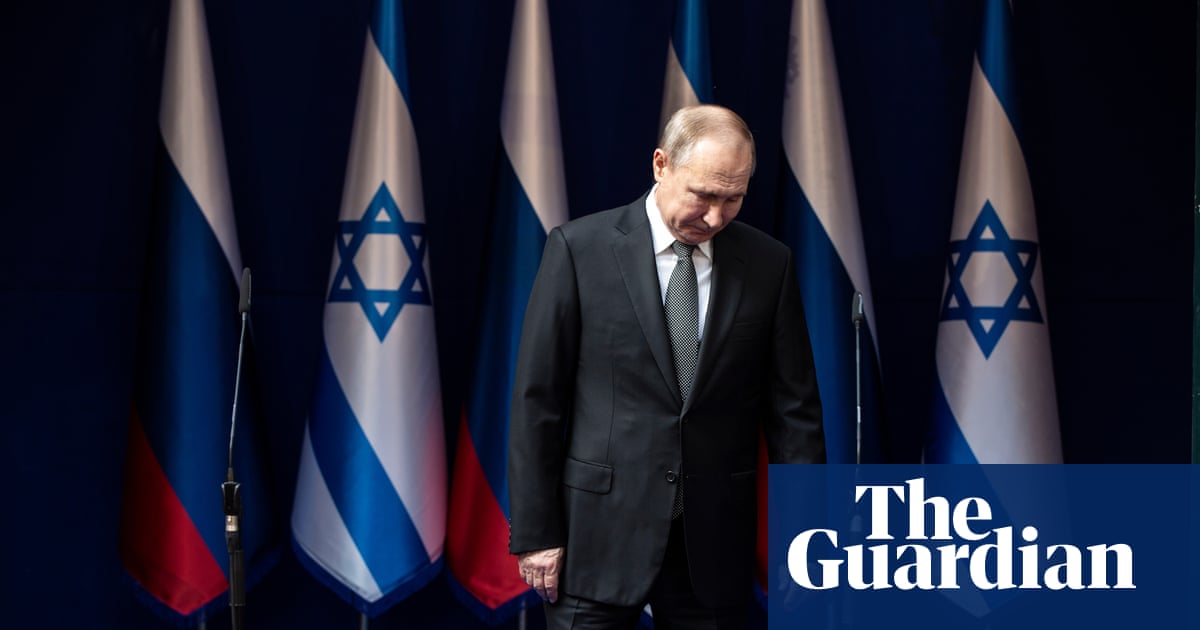
Israel’s prime minister, Benjamin Netanyahu, has long portrayed himself as a friend of Vladimir Putin. In a memoir published during Russia’s war on Ukraine, Netanyahu repeatedly lauded the Russian leader for his intellect and his “particularly friendly attitude” toward the Jewish people.
Putin, too, has over the years cast himself as a loyal ally of the Israeli state, promoting cultural ties and visa-free travel between the two countries.
But after the worst attack on Israel in decades, the much-touted friendship appears to have vanished.
Four days after the start of Hamas’s surprise attack, Putin is yet to call Netanyahu, while the Kremlin has not published a message of condolence to the country, a diplomatic gesture of goodwill that Russia routinely sends out to global leaders following deadly incidents on their soil.
On Tuesday, in his first comments about the Hamas incursion, Putin said the explosion of violence between Israel and the Palestinians showed that US policy had failed in the Middle East and had taken no account of the needs of the Palestinians.
“I think that many people will agree with me that this is a vivid example of the failure of United States policy in the Middle East,” Putin said, without acknowledging the gruesome deaths in Israel.
The shift in tone appears to point to a larger rift between the two countries that has taken place since the start of the war in Ukraine.
For years, Putin has sought to cultivate strong ties with Israel while also backing the Palestinian cause, an alliance which stems from the Soviet area.
Russia’s delicate diplomacy with Israel appeared to bear fruit when the country refused to participate in western sanctions against Russia, much to the chagrin of Kyiv, which accused Israel of ignoring the suffering of Ukrainian Jews.
But below the surface, there had been signs that the relationship between Russia and Israel was deteriorating over Putin’s claims that he was fighting “neo-Nazism” in Ukraine, while shifting his country into the orbit of Iran, an arch-enemy of Israel.
“The warm relationship [between Russia and Israel] that we have seen for years under Putin has cooled down. We are in a different world now,” said Pinchas Goldschmidt, who served as the chief rabbi of Moscow for nearly 30 years until fleeing the country over his opposition to the Ukraine war.
“Israel has always been careful to maintain a good relationship with Moscow given Russia’s large Jewish community and its influence over Syria,” Goldschmidt said, speaking to the Guardian by phone from Israel. On Saturday he attended the funeral of Yuval Ben Yaakov, an Israeli soldier killed in the fighting, who was the son of another former Moscow rabbi.
Goldschmidt said many in the Jewish community have been left deeply uncomfortable with Putin’s framing of the war, comparing Ukraine’s government to Nazi Germany to justify his invasion of the country.
Last summer, these tensions first spilled over into the public, when Russian officials accused Israel of supporting the “neo-Nazi regime” in Kyiv. The spat was ignited after Russia’s foreign minister, Sergei Lavrov, recycled an antisemitic conspiracy theory claiming that Adolf Hitler “had Jewish blood” – comments that Israel described as “unforgivable and outrageous”.
The Kremlin also cracked down on the Russian branch of the Jewish Agency, a private charity closely affiliated with the Israeli government that helped tens of thousands of highly skilled Jewish Russians to immigrate to Israel.
Perhaps more worryingly for Israel was Moscow’s growing reliance on Iran. Russia, isolated from western markets, has invested heavily in buying Iranian suicide drones to attack Ukrainian cities and civilian infrastructure, while the US has warned that Iran was seeking to acquire large numbers of Russian attack helicopters, warplanes and air defence systems.
As the US pledged to send its own military aid to Israel following the Hamas assault, some pro-Kremlin commentators expressed hope that the Israeli-Hamas war would drain western resources away from Ukraine.
Sergey Mardan, a Russian propagandist and television presenter, wrote: “This mess is beneficial for Russia, because the globalist toad will be distracted from Ukraine and will get busy trying to put out the eternal Middle Eastern fire.”
There was also a sense of glee in Moscow over Israeli military and intelligence blunders, which were presented as a testament of western weakness.
“Apparently, the IDF leadership … is resting on the laurels of long-past victories,” military expert Boris Rozhin, who is close to the Russian forces fighting in Ukraine, wrote on Telegram.
Andrei Soldatov, an expert on Russia’s security services, said such comments “unmasked the acute psychological trauma suffered by the Russian military after its disastrous offensive against Ukraine in the early months of 2022.”
“That loss of global respect is hard to bear for a nation with a proud military tradition. So, the relief offered by Hamas has triggered an avalanche of schadenfreude. Did you laugh at our incompetence? Now it’s our turn,” Soldatov said.
On Russian state television, commentators also ridiculed the tens of thousands of Russian Jews who left for Israel following Russia’s invasion of Ukraine in order to avoid mobilisation.
Addressing the Russian parliament on Wednesday, Vyacheslav Volodin, the speaker of the Duma, said that Russians who fled the country to side with Ukraine should be charged with treason and sent to work in mines.
“We’re probably ... talking about mines and we need to find territories where the weather is more constant, where there’s no summer,” Volodin said.
Meanwhile, Ukraine appears to have cast aside its previous grievances with Israel, eager to fill the friendship vacuum left behind by Russia.
In a speech made alongside Nato secretary general, Jens Stoltenberg, Ukraine’s president, Volodymyr Zelenskiy, likened Hamas’s assault on Israel this weekend to Russia’s invasion of Ukraine and said his people stood with Israel because they understood what it meant to suffer terror attacks.
“The only difference is that there is a terrorist organisation that attacked Israel, and here is a terrorist state that attacked Ukraine,” Zelenskiy said.

Vladimir Putin has long projected friendly ties to Israel. But his silence since Saturday’s assault illustrates how the war in Ukraine has strained the relationship between the two countries.
 image/webp 1059844.jpg
image/webp 1059844.jpg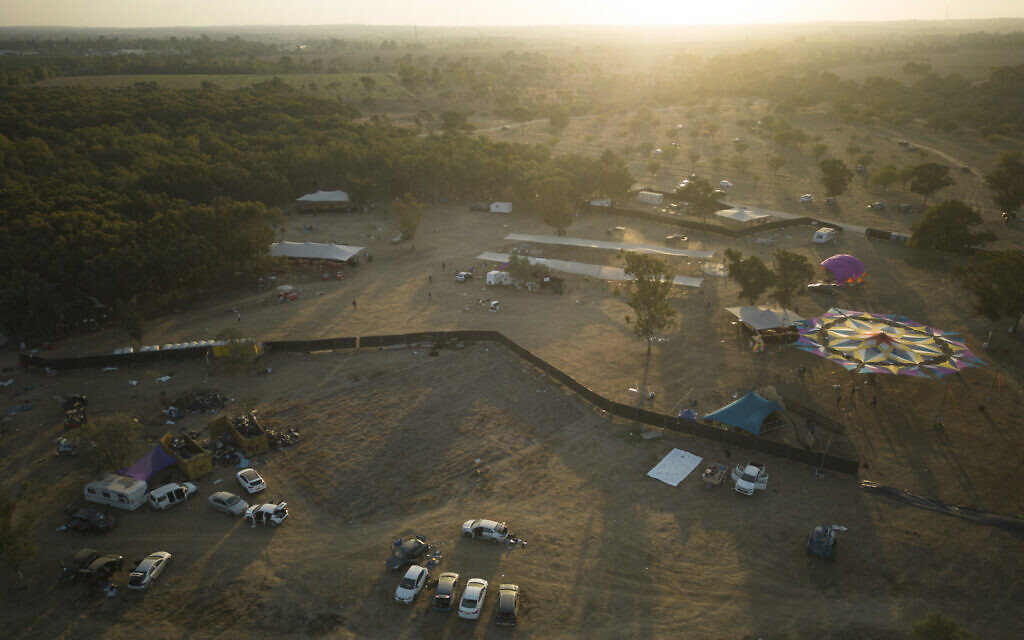
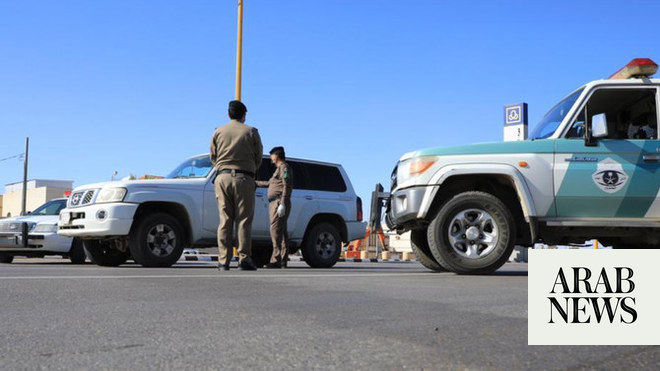
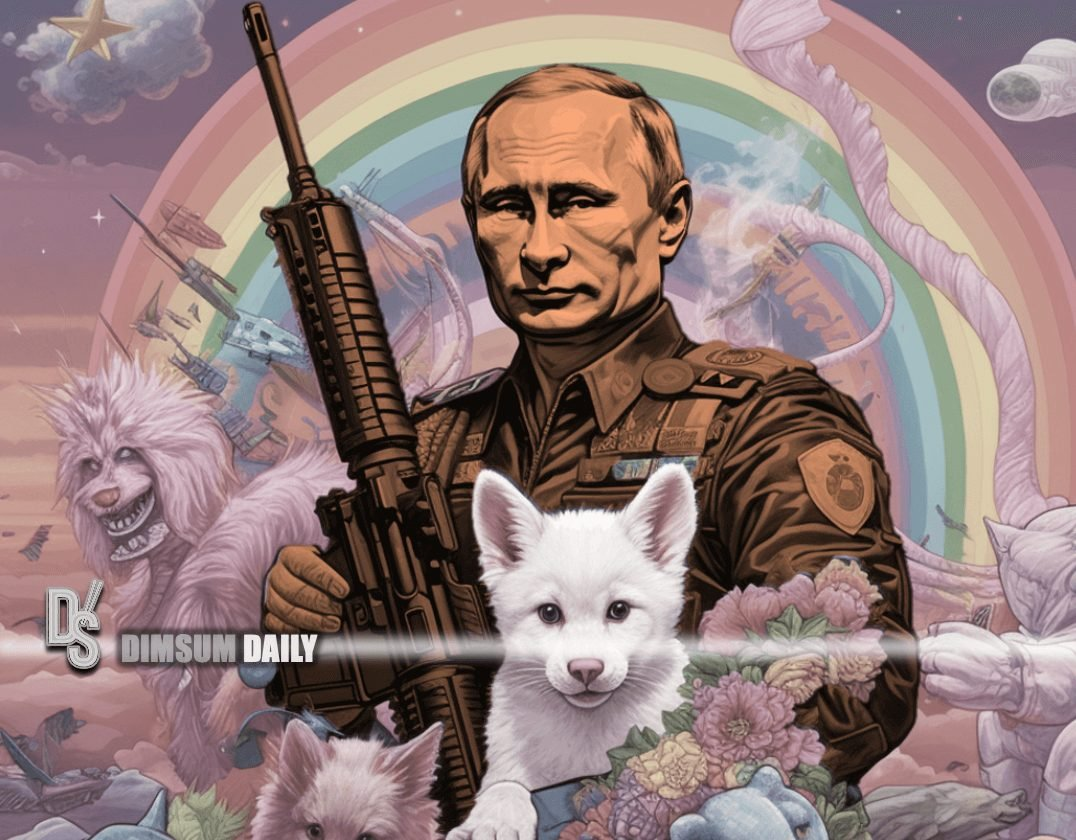
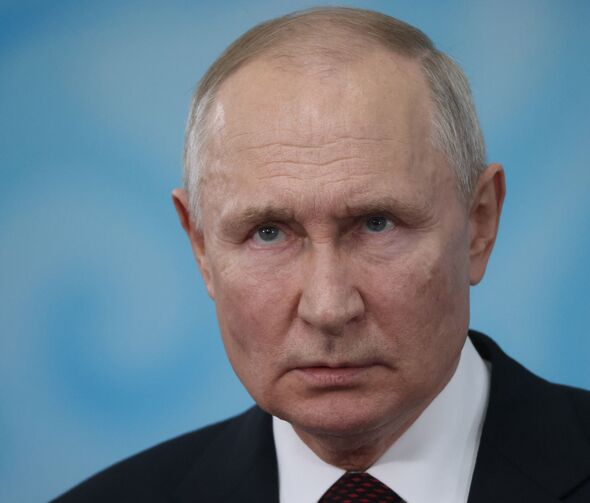
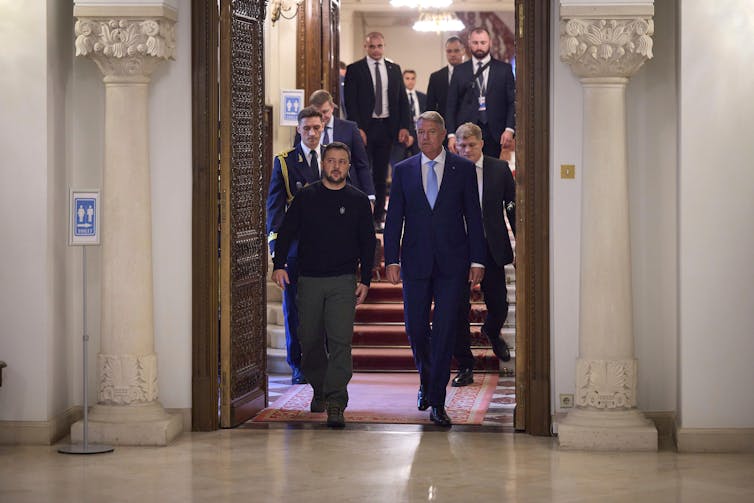


Comments
Post a Comment